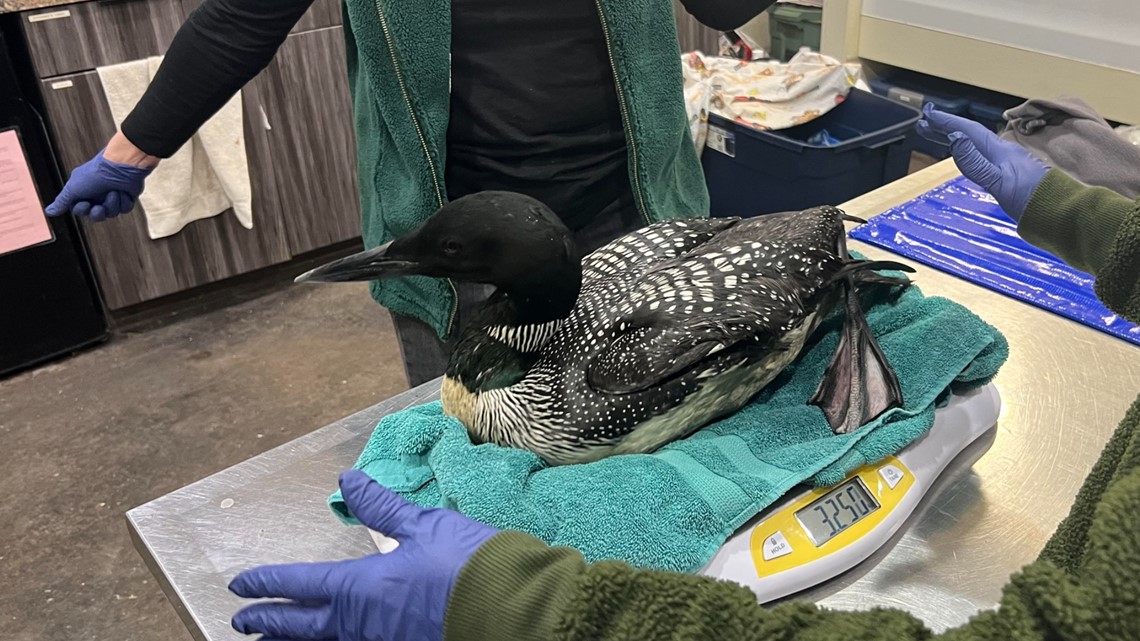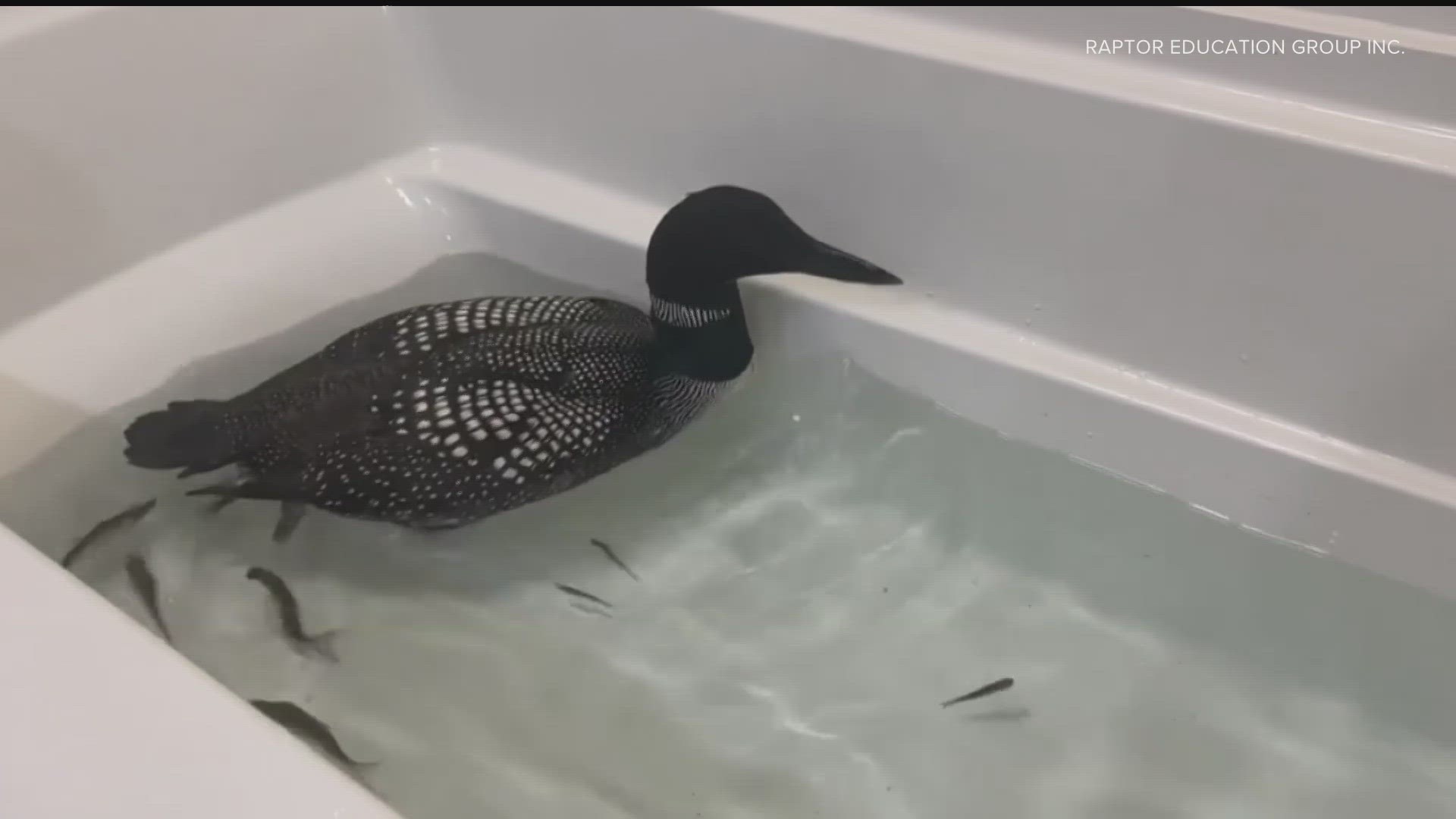ANTIGO, Wis. — Our wintry spring has been inconvenient and psychically taxing for many, but for loons in northern Wisconsin it is literally life-threatening.
The Raptor Education Group, Inc. (REGI), located in Antigo, Wisconsin, is getting swamped with calls reporting a phenomenon known as "loon fallout." It occurs when rare atmospheric conditions cause migrating loons to develop ice on their bodies when flying at high altitudes, causing the birds to crash land due to the weight of the ice or inability to physically fly.


“The ice gets so heavy that the birds cannot stay airborne and they fall to the ground, sometimes hard, in unusual places,” Lori Arent, assistant director at the Raptor Center at the University of Minnesota, told MPR News. “Loons need water to take off, so when their wings get iced, they often land in fields and other locations not near water.”
Our late-April cold snap, combined with freezing rain or sleet, is triggering loon fallout in the northeastern part of Wisconsin with reports of birds seen on the ground in Wausau, Gleason, Stratford, Neva, Rice Lake, Antigo and Drummond.
Rapture Education Group, Inc. is sharing reminders for residents who may come upon a grounded loon:
- Loons cannot walk: Their legs are placed way in the back of their bodies and are used only for swimming and diving.
- They have sharp beaks and will use them for defense. You can cover a loon with a blanket and carefully transport it to a wildlife rehab or raptor center in a secure container with holes in the top for air.
- Don't place them in a small pond or lake: Loons need a quarter-mile or more of open water to get airborne.
Anyone who comes upon a loon (especially on land) that appears to be struggling is urged to call REGI at 715-623-4015 or Loon Rescue at 715-966-5415.
Minnesota Department of Natural Resources (DNR) spokesperson Lori Naumann says she contacted agency climatologists after hearing about what's happening in Wisconsin, and they don't think loon fallout will happen here.
Naumann researched the phenomena in Minnesota and says the only historic evidence of birds icing up and crashing traces back to the Nov. 11, 1940 Armistice Day Storm.
WATCH MORE ON KARE 11+
Download the free KARE 11+ app for Roku, Fire TV, Apple TV and other smart TV platforms to watch more from KARE 11 anytime! The KARE 11+ app includes live streams of all of KARE 11's newscasts. You'll also find on-demand replays of newscasts; the latest from KARE 11 Investigates, Breaking the News and the Land of 10,000 Stories; exclusive programs like Verify and HeartThreads; and Minnesota sports talk from our partners at Locked On Minnesota.
- Add KARE 11+ on Roku here or by searching for KARE 11 in the Roku Channel Store.
- Add KARE 11+ on Fire TV here or by searching for KARE 11 in the Amazon App Store.
- Learn more about the KARE 11+ app for Apple TV in the Apple App Store.
- Learn more about KARE 11+ here.
Watch more WeatherMinds:
Watch the latest deep-dives and explainers on weather and science in our YouTube playlist:

